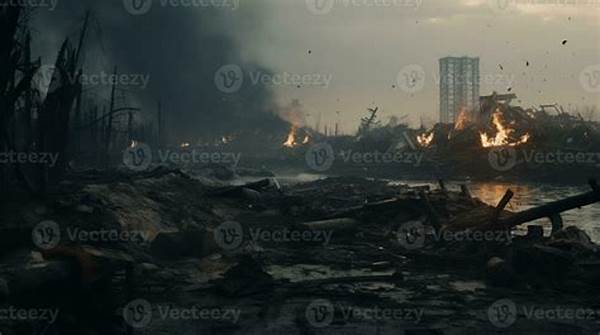The impact of warfare extends beyond human and economic losses, frequently manifesting in significant environmental consequences. Among these, ecosystem degradation due to war is a critical issue that demands attention. The destruction of landscapes, pollution of resources, and disruption of ecological processes are some of the most profound effects of military conflicts. As war rages, the environment suffers detrimentally, leading to the degradation of vital ecosystems. This article delves into various aspects of this issue, highlighting the need for greater awareness and action to mitigate the ecological impacts of war.
Immediate Environmental Consequences
Ecosystem degradation due to war can often be observed through immediate environmental consequences. Explosions, deforestation, and landmines contribute directly to the destruction of natural habitats. These activities not only cause immediate damage to the flora and fauna but also lead to long-term ecological disruptions. The release of harmful substances during combat operations often results in soil and water pollution, further exacerbating the degradation. As local ecosystems collapse, biodiversity is threatened, and species face heightened risks of extinction. These immediate consequences serve as a stark reminder of war’s devastating impact on nature, demanding urgent attention and response from the global community.
Long-Term Ecological Implications
1. Biodiversity Loss: Ecosystem degradation due to war results in the loss of biodiversity, with various species facing extinction due to habitat destruction.
2. Soil Degradation: Frequent bombing and the use of chemical weapons severely degrade soil quality, impacting agricultural productivity.
3. Water Contamination: The destruction of infrastructure often leads to water pollution, harming aquatic life and human health.
4. Air Pollution: War activities release pollutants into the air, contributing to climate change and health issues.
5. Forest Destruction: Deforestation for military advantage results in long-term ecological damage and contributes to global warming.
Socio-Economic Effects
Ecosystem degradation due to war extends its impact beyond the environment, affecting socio-economic conditions. The collapse of ecosystems disrupts agricultural practices, leading to food insecurity and economic instability. Communities dependent on natural resources for their livelihoods suffer immense loss. Additionally, the costs involved in post-conflict environmental restoration place a significant burden on national economies. The interplay between ecological degradation and economic hardship leads to a vicious cycle, hampering recovery efforts and prolonging the impacts of war. Therefore, addressing ecosystem degradation is crucial not only for environmental sustainability but also for socio-economic stability in post-conflict regions.
Strategies for Mitigation
Efforts to mitigate ecosystem degradation due to war should include comprehensive strategies that encompass immediate relief and long-term planning. Restoration projects aiming to rehabilitate destroyed landscapes should be prioritized. Additionally, policies must be implemented to minimize the environmental footprint of military operations. International cooperation is essential, with countries working together to enforce stricter regulations on wartime conduct concerning the environment. Investment in research and technology to monitor and address environmental damage can also play a pivotal role. These strategies require the collective efforts of governments, NGOs, and the global community to protect ecosystems from the ravages of war.
Role of International Organizations
International organizations hold a vital role in addressing ecosystem degradation due to war. By facilitating dialogue and cooperation among nations, they can promote adherence to environmental protection standards during conflict. Organizations such as the United Nations Environment Programme (UNEP) work towards assessing and mitigating environmental damage in war zones. Their research and reports are crucial for raising awareness and influencing policy decisions. Moreover, they can provide technical and financial assistance to countries recovering from war-induced environmental damage. The collaborative efforts of international bodies are essential in promoting sustainable recovery of ecosystems affected by war.
The Human-Nature Relationship
The human-nature relationship is profoundly altered by ecosystem degradation due to war. As environments are decimated, the cultural and spiritual connections between communities and their natural surroundings are disrupted. This loss impacts mental well-being and cultural heritage, further complicating the healing process post-conflict. Restoration of these environments is critical in rebuilding human connections to nature, promoting healing and resilience. Recognizing and revitalizing these ties is an essential component of post-war recovery, ensuring communities can thrive in harmony with their surrounding ecosystems once more.
Conclusion
In summary, ecosystem degradation due to war presents multifaceted challenges that extend across environmental, socio-economic, and cultural domains. The immediate devastation caused by warfare disrupts ecosystems, leading to long-lasting ecological deterioration. The socio-economic consequences further exacerbate post-conflict recovery efforts, necessitating comprehensive strategies for mitigation and restoration. International cooperation, along with active participation from governments and communities, is crucial for addressing these issues. It is imperative to recognize the significant impacts of war on ecosystems and prioritize sustainable practices to protect the environment and promote peace. Through these concerted efforts, the global community can work towards a future where war no longer poses a threat to our planet’s invaluable ecosystems.





